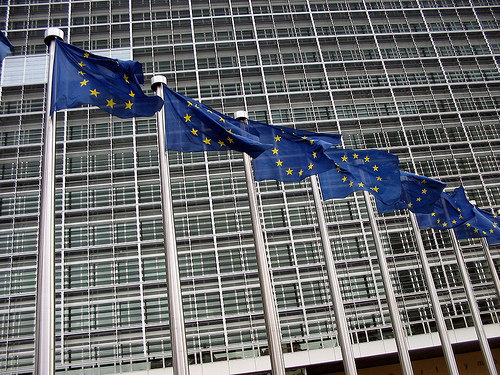MOSCOW, September 14 (RAPSI) – The Council of the European Union has prolonged individual restrictive measures against number of persons and companies over crisis in Ukraine until March 15, 2018, the Council’s statement reads on Thursday.
According to the Council, there is no reason to change the sanctions regime.
Currently, the EU blacklist contains 149 persons and 38 legal entities. Four persons were excluded from the list after they died. In addition, after three of these companies merged into one, it was also included in the list. The blacklisted persons are prohibited from entering the European Union and their assets are to be frozen.
On June 28, the European Union prolonged another set of sanctions related to the crisis in Ukraine, ones targeting specific sectors of the Russian economy, until January 31, 2018.
The economic sanctions targeting the financial, energy, and defense sectors, as well as the sector of dual-use goods, were first introduced on July 31, 2014, for a one-year period and toughened in September 2014.
Later, in March 2015, the European Council linked the end of the sanctions to the complete implementation of the Minsk agreements.
In addition to the sanctions, limiting access to EU capital markets for five major Russian majority state-owned financial institutions and three major Russian energy and three defense companies, as well as curtailing access to some sensitive technologies and services related to oil production and exploration, the European Council employed additional measures. Among them are targeted individual restrictive measures mentioned above and restrictive measures undertaken in response to the reunification of Crimea and Sevastopol with Russia deemed illegal by EU, in place until June 23, 2018.
In the spring of 2014, the EU, the United States and Canada slapped the first sanctions on Russian companies, banks and politicians, freezing their bank accounts, denying them entry and refusing to buy Russian products. The move was linked to the conflict in Ukraine. Among the companies affected by these sanctions are several of top Russian companies: Sberbank, VTB, Gazprombank and others.
In response, in August 2014, the Russian government introduced a year-long ban on agricultural imports from the EU, the US, Canada and several other countries that imposed sanctions on Russia. Blacklisted food imports included meat, fish, dairy, fruit and vegetables.



